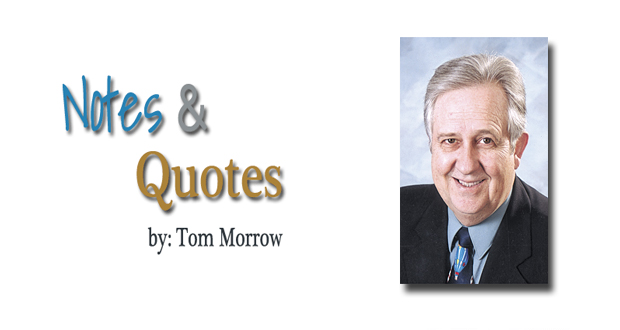Today’s Civil Unrest Will Be Tomorrow’s History in the Making
By Tom Morrow
If you’ve ever wondered about what constitute “history,” well, we’ve been living a series of events over the past few weeks that will go down as the most historically significant and dangerous period since the War of 1812 and the Civil War. Our nation is being threaten like never before.

You probably won’t hear or read much about the term “Posse Comitatus” (Poss-eh Com-it-tah-tus) or the “Alien and Sedition” laws, but they’re very much on the minds of many of today’s law enforcement and legislative leaders … or at least they should be.
Posse Comitatus is a federal act signed into law in 1878 by President Rutherford B. Hayes. It calls for the limitation in the use of federal military personnel to enforce “domestic policies within the United States.”
Posse Comitatus does not prevent the Army National Guard or the Air National Guard, under a state governors’ “militia” authority from acting in a law enforcement capacity within their home state or in an adjacent state if invited by that state’s governor. You’ve recently seen on TV the National Guard from the Washington D.C. area. The last time “federal” Army troops were used was in 1957 when President Dwight D. Eisenhower sent the U.S. Army’s 101st Airborne troops into Little Rock, Ark. to ensure African-American teenagers could attend high school. The Arkansas governor, Orval Faubus, refused to deploy that state’s National Guard, hence Ike was forced to use the U.S. Army to enforce the new school segregation law.
Recently the term “sedition” has been thrown around in various news reports, but unless you’ve studied President John Adams and the turmoil surrounding his administration, or you are a student of Civics, chances are you haven’t heard or know that much about “sedition.”
The “Alien and Sedition Act” was rarely enforced because it was a controversial law during John Adams’ presidency. In one instance, U.S. Rep. Matthew Lyon of Vermont was found guilty and sentenced to four months in jail for merely criticizing Adams.
Members of the Democrat-Republican party were outraged. (there were two other political parties at that time: the Federalist Party and the Whig Party). Thomas Jefferson wrote secretly to James Madison saying states had the “natural right” to nullify any acts they deemed unconstitutional.

Jefferson speculated as a last resort the states might have to “sever ourselves from the union we so much value.” Federalists reacted bitterly to the resolutions which were to have far-more lasting implications as the nation marched toward the Civil War. Still, the acts Adams signed into law energized and unified the Democrat-Republican Party while doing little to unite the Federalists.
The definition of “Sedition” is the overt conduct such as speech and organization that tends toward rebellion against the established order. Sedition often includes subversion of the U.S. Constitution and incitement of discontent toward, or rebellion against, established government authority. Sedition may include any commotion, though not aimed at direct and open violence against the law. Seditious terms in writing can be considered libel. A seditionist person is one who engages in or promotes the act of sedition. This describe exactly what President Donald Trump is accused of in the recent U.S. House. impeachment charges.
The U.S. Constitution places primary responsibility for the holding of elections in the hands of the individual states. The maintenance of peace, conduct of orderly elections, and prosecution of unlawful actions are all individual state responsibilities. President Trump suspected, albeit unsubstantiated, various state law violations primarily in Pennsylvania and Georgia. He and his followers claimed because of these suspected violations, the presidency was denied him for a second term. Whether he and his legal team were right, the civil protests following last November’s general election has resulted in unprecedented national upheaval the likes never seen since the British ransacked Washington D.C. in 1814. It has divided the nation like nothing else since our Civil War.
Last summer, the George Floyd protest in Washington D.C. generated controversy when National Guard troops were called in to suppress the unrest. The Guard operates In Washington D.C. as a state militia not subject of Posse Comitatus restriction even though it is a federal entity under the command of the President and the Secretary of the Army.
The “right” or “wrong” of these last few weeks will be studied by historians for years to come. President Trump will either go down in history as a hero or a most-hated villain — depending upon who you believe, of course. The final decision will be determined by historians, years after we’re gone. They’ll no doubt come to a variety of conclusions – depending, of course, how they interpret these last days of 2020 and the early days of 2021. There will be books written and commentary given by media pundits of today, then, as we all die off, future historians will come to their own conclusions – right or wrong. We won’t be alive to argue.




